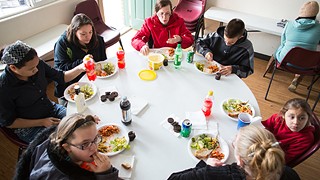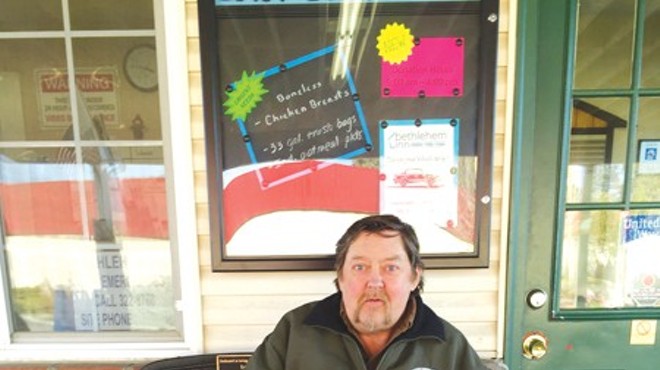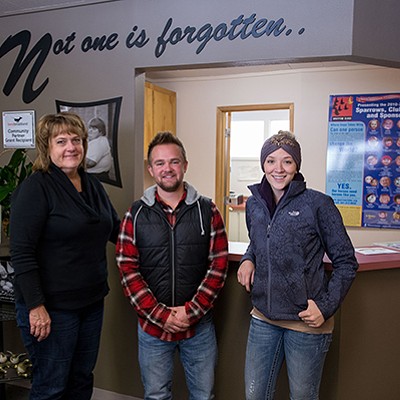Every year, as cold nights settle into the High Desert, increased attention is paid to the plight of those without shelter. But in a community with a nearly impermeable rental market and high un- and under-employment, homelessness is a year-round problem for increasing numbers of Central Oregonians.
"This entire year we have seen record numbers," says Gwenn Wysling, executive director of Bethlehem Inn, the only emergency shelter in the region that takes men, women and families. "Winter has a certain impact on our population, but really it is the continued challenge of affordable housing that is making it hard to get out of a difficult situation."
Many of those staying at the Inn are employed. Per shelter rules, they do not panhandle or consume drugs or alcohol. All are required to take measurable steps toward getting back on their feet, including spending their days outside Bethlehem Inn at work, school or other productive endeavors.
In exchange, the shelter provides three meals a day, clothing, a bed, a roof and other support services. As many as 100 people and five families are staying there at any given time. Last year, Bethlehem Inn provided shelter and support to about 1,100 individuals, and gave out 71,000 meals and 1,500 food boxes to homeless families. Since the cold snap hit, Bethlehem Inn has opened its kitchen and lounges to provide seasonal overflow.
Because Bethlehem Inn does not have a commercial kitchen, community members donate most of the hot dinner meals. In fact, the bulk of the shelter's income comes from individual donations. Wysling says that despite assumptions to the contrary, they receive very few government dollars. Deschutes County funding and passthrough money from NeighborImpact, Wysling says, comprises just 7 percent of the organization's annual operating budget.
"Ninety-three percent of funding comes from individuals in the community and foundation grants that we apply for," she explains, adding that grants make up only 25 percent of total funding. "That has increased over two to three years, as we've been able to gain some ground in terms of communicating what our needs are."
Tucked behind the Burger King on the north end of town, the shelter is actually an old motel. Owned by Deschutes County, Bethlehem Inn currently leases the building with plans to eventually buy. The shelter recently received a loan from the City via the Affordable Housing Fee that will allow it to upgrade heaters (recalled in 2000 for being a fire hazard) and move pipes prone to freezing inside.
"The challenge that we have is that this is a very old building," Wysling explains. "It takes a lot to keep it running and maintained."
With such a vital need and such limited funding, she says that Bethlehem Inn has gotten good at making the most of what it has. As a result, even modest donations can go a long way toward providing shelter for a neighbor in need.
Just $24 covers a night of shelter, three meals and a shower. For $375, donors can "adopt" all five families for a night.
"We leverage every dollar we get," Wysling says.
Ultimately, she explains, it's an investment in the community and in the future.
"Because we have a safe place for people to stay, we don't see some of the challenges as much as you do in the bigger cities," Wysling says.
Desperate times can lead people to take desperate measures. Providing shelter in a time of crisis increases safety for everyone. It also reduces the burden on other county support infrastructures.
But giving cash isn't the only way to help. Bethlehem Inn makes heavy use of volunteers and has a robust recycling program, using donated redeemable bottles and cans to help cover its rent. There are always food and clothing drives. And community members find creative ways to raise funds and supplies.
"We have kids that will do a Party with a Purpose," Wysling says. "A young gal just had her 11th birthday, and instead of gifts asked that they donate items to Bethlehem Inn."
She adds that, despite the dismal circumstances that may lead someone to the shelter, most residents move on to a more stable life.
"We have folks that have great success stories being able to move in and out," Wysling says, adding that the average stay has historically been 30 days. "It's been a little bit longer with the lack of affordable housing."

























